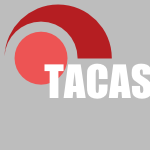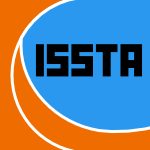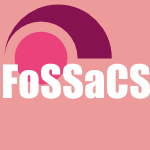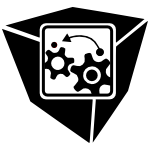143 papers:
 DATE-2015-JiaoMD #reasoning #synthesis
DATE-2015-JiaoMD #reasoning #synthesis- Knowledge-intensive, causal reasoning for analog circuit topology synthesis in emergent and innovative applications (FJ, SM, AD), pp. 1144–1149.
 PLDI-2015-Huang #concurrent #model checking #reduction #source code
PLDI-2015-Huang #concurrent #model checking #reduction #source code- Stateless model checking concurrent programs with maximal causality reduction (JH), pp. 165–174.
 STOC-2015-ChenJL #capacity #online
STOC-2015-ChenJL #capacity #online- A Characterization of the Capacity of Online (causal) Binary Channels (ZC, SJ, ML), pp. 287–296.
 ICML-2015-GeigerZSGJ #component #identification #process
ICML-2015-GeigerZSGJ #component #identification #process- Causal Inference by Identification of Vector Autoregressive Processes with Hidden Components (PG, KZ, BS, MG, DJ), pp. 1917–1925.
 ICML-2015-GongZSTG
ICML-2015-GongZSTG- Discovering Temporal Causal Relations from Subsampled Data (MG, KZ, BS, DT, PG), pp. 1898–1906.
 KDD-2015-Athey #evaluation #machine learning #policy
KDD-2015-Athey #evaluation #machine learning #policy- Machine Learning and Causal Inference for Policy Evaluation (SA), pp. 5–6.
 KDD-2015-HillMHTPT #online
KDD-2015-HillMHTPT #online- Measuring Causal Impact of Online Actions via Natural Experiments: Application to Display Advertising (DNH, RM, AEH, VT, FJP, KT), pp. 1839–1847.
 KDD-2015-StantonTJVCS #data-driven #mining
KDD-2015-StantonTJVCS #data-driven #mining- Mining for Causal Relationships: A Data-Driven Study of the Islamic State (AS, AT, AJ, PV, AC, PS), pp. 2137–2146.
 ICSE-v2-2015-Cornu #debugging #named #null #using
ICSE-v2-2015-Cornu #debugging #named #null #using- Casper: Using Ghosts to Debug Null Deferences with Dynamic Causality Traces (BC), pp. 790–791.
 SOSP-2015-CurtsingerB #named #profiling
SOSP-2015-CurtsingerB #named #profiling- Coz: finding code that counts with causal profiling (CC, EDB), pp. 184–197.
 SOSP-2015-MaceRF #distributed #monitoring
SOSP-2015-MaceRF #distributed #monitoring- Pivot tracing: dynamic causal monitoring for distributed systems (JM, RR, RF), pp. 378–393.
 CAV-2015-FinkbeinerGO #distributed #named #synthesis
CAV-2015-FinkbeinerGO #distributed #named #synthesis- Adam: Causality-Based Synthesis of Distributed Systems (BF, MG, ERO), pp. 433–439.
 ICST-2015-BaiSP #fault #named #using
ICST-2015-BaiSP #fault #named #using- NUMFL: Localizing Faults in Numerical Software Using a Value-Based Causal Model (ZB, GS, AP), pp. 1–10.
 VLDB-2014-MeliouRS #database
VLDB-2014-MeliouRS #database- Causality and Explanations in Databases (AM, SR, DS), pp. 1715–1716.
 FASE-2014-GiachinoLM #debugging
FASE-2014-GiachinoLM #debugging- Causal-Consistent Reversible Debugging (EG, IL, CAM), pp. 370–384.
 FM-2014-LinH #composition #concurrent #learning #model checking #synthesis
FM-2014-LinH #composition #concurrent #learning #model checking #synthesis- Compositional Synthesis of Concurrent Systems through Causal Model Checking and Learning (SWL, PAH), pp. 416–431.
 CHI-2014-DarlowGS #interactive
CHI-2014-DarlowGS #interactive- Causal interactions (AD, GG, SS), pp. 1655–1664.
 CHI-2014-NancelC #concept #interactive #named
CHI-2014-NancelC #concept #interactive #named- Causality: a conceptual model of interaction history (MN, AC), pp. 1777–1786.
 ICEIS-v2-2014-RoychoudhurySK #estimation
ICEIS-v2-2014-RoychoudhurySK #estimation- Impact of Dynamicity and Causality on Cost Drivers in Effort Estimation (SR, SS, VK), pp. 409–414.
 CIKM-2014-SeolJYCL #problem #summary
CIKM-2014-SeolJYCL #problem #summary- A Problem-Action Relation Extraction Based on Causality Patterns of Clinical Events in Discharge Summaries (JWS, SHJ, WY, JC, KSL), pp. 1971–1974.
 ICML-c2-2014-KpotufeSJS #consistency
ICML-c2-2014-KpotufeSJS #consistency- Consistency of Causal Inference under the Additive Noise Model (SK, ES, DJ, BS), pp. 478–486.
 ICPR-2014-XuS #learning #network #using
ICPR-2014-XuS #learning #network #using- Bayesian Network Structure Learning Using Causality (ZX, SNS), pp. 3546–3551.
 KR-2014-Bochman #calculus
KR-2014-Bochman #calculus- Dynamic Causal Calculus (AB).
 KR-2014-Halpern #modelling
KR-2014-Halpern #modelling- Appropriate Causal Models and Stability of Causation (JYH).
 SEKE-2014-WangGZLLYY #testing
SEKE-2014-WangGZLLYY #testing- Reducing Test Cases with Causality Partitions (HW, XG, QZ, TL, XL, LY, ZY), pp. 223–228.
 CAV-2014-KupriyanovF #concurrent #multi #source code #termination #thread
CAV-2014-KupriyanovF #concurrent #multi #source code #termination #thread- Causal Termination of Multi-threaded Programs (AK, BF), pp. 814–830.
 ICLP-J-2014-CabalarFF #graph #logic programming #source code
ICLP-J-2014-CabalarFF #graph #logic programming #source code- Causal Graph Justifications of Logic Programs (PC, JF, MF), pp. 603–618.
 QoSA-2013-FeugasMD #evolution #predict #process #quality
QoSA-2013-FeugasMD #evolution #predict #process #quality- A causal model to predict the effect of business process evolution on quality of service (AF, SM, LD), pp. 143–152.
 CASE-2013-ZhouKZS #analysis
CASE-2013-ZhouKZS #analysis- Causal analysis for non-stationary time series in sensor-rich smart buildings (YZ, ZK, LZ, CJS), pp. 593–598.
 SIGMOD-2013-BailisGHS #consistency
SIGMOD-2013-BailisGHS #consistency- Bolt-on causal consistency (PB, AG, JMH, IS), pp. 761–772.
 DHM-SET-2013-BerberianSC
DHM-SET-2013-BerberianSC- Causal Attribution and Control: Between Consciousness and Psychical Half-Shadow Application to Flight Operations (BB, JCS, LC), pp. 11–20.
 DHM-SET-2013-ChiLC #analysis
DHM-SET-2013-ChiLC #analysis- The Causal Analysis of Requested Alterations for Pressure Garments (CFC, CHL, HWC), pp. 173–182.
 CIKM-2013-KimCHZRD #feedback #mining #modelling #topic
CIKM-2013-KimCHZRD #feedback #mining #modelling #topic- Mining causal topics in text data: iterative topic modeling with time series feedback (HDK, MC, MH, CZ, TAR, DD), pp. 885–890.
 CIKM-2013-Lian0 #database #nondeterminism #probability #query
CIKM-2013-Lian0 #database #nondeterminism #probability #query- Causality and responsibility: probabilistic queries revisited in uncertain databases (XL, LC), pp. 349–358.
 ICML-c3-2013-ToulisK #estimation
ICML-c3-2013-ToulisK #estimation- Estimation of Causal Peer Influence Effects (PT, EKK), pp. 1489–1497.
 ICSE-2013-SumnerZ #comparative #difference
ICSE-2013-SumnerZ #comparative #difference- Comparative causality: explaining the differences between executions (WNS, XZ), pp. 272–281.
 ICST-2013-ShuSPC #fault #locality #named
ICST-2013-ShuSPC #fault #locality #named- MFL: Method-Level Fault Localization with Causal Inference (GS, BS, AP, FC), pp. 124–133.
 VMCAI-2013-Leitner-FischerL #modelling
VMCAI-2013-Leitner-FischerL #modelling- Causality Checking for Complex System Models (FLF, SL), pp. 248–267.
 CSMR-2012-CoutoSVBA #debugging #metric
CSMR-2012-CoutoSVBA #debugging #metric- Uncovering Causal Relationships between Software Metrics and Bugs (CC, CS, MTV, RdSB, NA), pp. 223–232.
 ICALP-v2-2012-ArrighiD #graph
ICALP-v2-2012-ArrighiD #graph- Causal Graph Dynamics (PA, GD), pp. 54–66.
 CIKM-2012-KimZRDHCL #mining #named #topic
CIKM-2012-KimZRDHCL #mining #named #topic- InCaToMi: integrative causal topic miner between textual and non-textual time series data (HDK, CZ, TAR, DD, MH, MC, CCL), pp. 2689–2691.
 ICML-2012-BorboudakisT #constraints #graph #information management #network
ICML-2012-BorboudakisT #constraints #graph #information management #network- Incorporating Causal Prior Knowledge as Path-Constraints in Bayesian Networks and Maximal Ancestral Graphs (GB, IT), p. 59.
 ICML-2012-ScholkopfJPSZM #learning #on the
ICML-2012-ScholkopfJPSZM #learning #on the- On causal and anticausal learning (BS, DJ, JP, ES, KZ, JMM), p. 63.
 ICPR-2012-YiP #classification #graph
ICPR-2012-YiP #classification #graph- Sparse Granger causality graphs for human action classification (SY, VP), pp. 3374–3377.
 KDD-2012-HanSCX #composition #modelling #visual notation
KDD-2012-HanSCX #composition #modelling #visual notation- Overlapping decomposition for causal graphical modeling (LH, GS, GC, KX), pp. 114–122.
 ICST-2012-DiGiuseppeJ #behaviour #clustering #empirical #fault
ICST-2012-DiGiuseppeJ #behaviour #clustering #empirical #fault- Software Behavior and Failure Clustering: An Empirical Study of Fault Causality (ND, JAJ), pp. 191–200.
 SIGMOD-2011-MeliouGNS #fault
SIGMOD-2011-MeliouGNS #fault- Tracing data errors with view-conditioned causality (AM, WG, SN, DS), pp. 505–516.
 DUXU-v2-2011-Hsu11b #analysis #design
DUXU-v2-2011-Hsu11b #analysis #design- Analysis of Causal Relationships between Blog Design Criteria (CCH), pp. 13–19.
 EDOC-2011-Halle #contract #logic #message passing
EDOC-2011-Halle #contract #logic #message passing- Causality in Message-Based Contract Violations: A Temporal Logic “Whodunit” (SH), pp. 171–180.
 ICEIS-v4-2011-DuG #research
ICEIS-v4-2011-DuG #research- The Research on Human Factors in Urban Traffic based on the Causal Relationship (XD, JG), pp. 557–562.
 KDD-2011-LiuZCYX #data type #interactive
KDD-2011-LiuZCYX #data type #interactive- Discovering spatio-temporal causal interactions in traffic data streams (WL, YZ, SC, JY, XX), pp. 1010–1018.
 KDD-2011-Pearl
KDD-2011-Pearl- The mathematics of causal inference (JP), p. 5.
 KDD-2011-SnowsillFBC #question
KDD-2011-SnowsillFBC #question- Refining causality: who copied from whom? (TMS, NF, TDB, NC), pp. 466–474.
 SEKE-2011-GuntherNGD #network #process
SEKE-2011-GuntherNGD #network #process- Causal Networks Based Process Improvement (DG, RN, KG, RRD), pp. 462–465.
 SOSP-2011-LloydFKA #consistency #scalability
SOSP-2011-LloydFKA #consistency #scalability- Don’t settle for eventual: scalable causal consistency for wide-area storage with COPS (WL, MJF, MK, DGA), pp. 401–416.
 ICLP-2011-CasolaryL #programming #representation #set
ICLP-2011-CasolaryL #programming #representation #set- Representing the Language of the Causal Calculator in Answer Set Programming (MC, JL), pp. 51–61.
 VLDB-2011-MeliouGMS #complexity #query
VLDB-2011-MeliouGMS #complexity #query- The Complexity of Causality and Responsibility for Query Answers and non-Answers (AM, WG, KFM, DS), pp. 34–45.
 TACAS-2010-MoyA #calculus #problem #realtime
TACAS-2010-MoyA #calculus #problem #realtime- Arrival Curves for Real-Time Calculus: The Causality Problem and Its Solutions (MM, KA), pp. 358–372.
 CIKM-2010-Kawamae #topic
CIKM-2010-Kawamae #topic- Latent interest-topic model: finding the causal relationships behind dyadic data (NK), pp. 649–658.
 ICML-2010-BontempiM #array
ICML-2010-BontempiM #array- Causal filter selection in microarray data (GB, PEM), pp. 95–102.
 ICML-2010-LiuNLL #analysis #graph #learning #relational
ICML-2010-LiuNLL #analysis #graph #learning #relational- Learning Temporal Causal Graphs for Relational Time-Series Analysis (YL, ANM, ACL, YL), pp. 687–694.
 ICML-2010-ZiebartBD #interactive #modelling #principle
ICML-2010-ZiebartBD #interactive #modelling #principle- Modeling Interaction via the Principle of Maximum Causal Entropy (BDZ, JAB, AKD), pp. 1255–1262.
 ICPR-2010-SethP #independence #parametricity
ICPR-2010-SethP #independence #parametricity- A Test of Granger Non-causality Based on Nonparametric Conditional Independence (SS, JCP), pp. 2620–2623.
 KDD-2010-ChanGGHL #modelling #online #pipes and filters #scalability
KDD-2010-ChanGGHL #modelling #online #pipes and filters #scalability- Evaluating online ad campaigns in a pipeline: causal models at scale (DC, RG, OG, TH, DL), pp. 7–16.
 KDD-2010-WangC #algorithm #linear #modelling #performance
KDD-2010-WangC #algorithm #linear #modelling #performance- An efficient causal discovery algorithm for linear models (ZW, LC), pp. 1109–1118.
 KR-2010-Halpern #modelling
KR-2010-Halpern #modelling- From Causal Models To Counterfactual Structures (JYH).
 SAC-2010-SchiperP #algorithm #flexibility #multi #performance
SAC-2010-SchiperP #algorithm #flexibility #multi #performance- Fast, flexible, and highly resilient genuine fifo and causal multicast algorithms (NS, FP), pp. 418–422.
 CAV-2010-KahlonW #concurrent #debugging #detection #graph #precise #source code
CAV-2010-KahlonW #concurrent #debugging #detection #graph #precise #source code- Universal Causality Graphs: A Precise Happens-Before Model for Detecting Bugs in Concurrent Programs (VK, CW), pp. 434–449.
 ISSTA-2010-BaahPH #fault #locality #statistics
ISSTA-2010-BaahPH #fault #locality #statistics- Causal inference for statistical fault localization (GKB, AP, MJH), pp. 73–84.
 FASE-2009-SumnerZ #algorithm #automation
FASE-2009-SumnerZ #algorithm #automation- Algorithms for Automatically Computing the Causal Paths of Failures (WNS, XZ), pp. 355–369.
 FoSSaCS-2009-Gutierrez #bisimulation #concurrent #game studies #logic
FoSSaCS-2009-Gutierrez #bisimulation #concurrent #game studies #logic- Logics and Bisimulation Games for Concurrency, Causality and Conflict (JG), pp. 48–62.
 SAS-2009-WehrleH #graph #model checking
SAS-2009-WehrleH #graph #model checking- The Causal Graph Revisited for Directed Model Checking (MW, MH), pp. 86–101.
 ICFP-2009-LiuCH #commutative #optimisation
ICFP-2009-LiuCH #commutative #optimisation- Causal commutative arrows and their optimization (HL, EC, PH), pp. 35–46.
 HCI-VAD-2009-ChungK
HCI-VAD-2009-ChungK- Causal Links of Presence (DC, CHK), pp. 279–286.
 ICML-2009-MooijJPS #dependence #modelling
ICML-2009-MooijJPS #dependence #modelling- Regression by dependence minimization and its application to causal inference in additive noise models (JMM, DJ, JP, BS), pp. 745–752.
 ICML-2009-PetersJGS #detection
ICML-2009-PetersJGS #detection- Detecting the direction of causal time series (JP, DJ, AG, BS), pp. 801–808.
 KDD-2009-LozanoALR #modelling #visual notation
KDD-2009-LozanoALR #modelling #visual notation- Grouped graphical Granger modeling methods for temporal causal modeling (ACL, NA, YL, SR), pp. 577–586.
 KDD-2009-LozanoLNLPHA #modelling
KDD-2009-LozanoLNLPHA #modelling- Spatial-temporal causal modeling for climate change attribution (ACL, HL, ANM, YL, CP, JRMH, NA), pp. 587–596.
 KDD-2009-ShibuyaHK #modelling #multi #quantifier
KDD-2009-ShibuyaHK #modelling #multi #quantifier- Causality quantification and its applications: structuring and modeling of multivariate time series (TS, TH, YK), pp. 787–796.
 KDIR-2009-GoyalBM #query #using
KDIR-2009-GoyalBM #query #using- Entailment of Causal Queries in Narratives using Action Language (PG, LB, TMM), pp. 112–118.
 SEKE-2009-AtkinsonD #analysis #modelling #re-engineering #social
SEKE-2009-AtkinsonD #analysis #modelling #re-engineering #social- Analysis of Agent Oriented Software Engineering Methodologies for Social Causal Models (MA, SD), pp. 157–163.
 CAV-2009-BeerBCOT #using
CAV-2009-BeerBCOT #using- Explaining Counterexamples Using Causality (IB, SBD, HC, AO, RJT), pp. 94–108.
 LICS-2009-Mimram #first-order
LICS-2009-Mimram #first-order- The Structure of First-Order Causality (SM), pp. 212–221.
 ICML-2008-HyvarinenSH #modelling
ICML-2008-HyvarinenSH #modelling- Causal modelling combining instantaneous and lagged effects: an identifiable model based on non-Gaussianity (AH, SS, POH), pp. 424–431.
 KDD-2008-JensenFTM #automation #design #identification
KDD-2008-JensenFTM #automation #design #identification- Automatic identification of quasi-experimental designs for discovering causal knowledge (DDJ, ASF, BJT, MEM), pp. 372–380.
 KR-2008-Halpern08a
KR-2008-Halpern08a- Defaults and Normality in Causal Structures (JYH), pp. 198–208.
 KR-2008-Meyden #distributed #on the
KR-2008-Meyden #distributed #on the- On Notions of Causality and Distributed Knowledge (RvdM), pp. 209–219.
 KR-2008-Saint-Cyr #reasoning
KR-2008-Saint-Cyr #reasoning- Scenario Update Applied to Causal Reasoning (FDdSC), pp. 188–197.
 SEKE-2008-MatalongaG #analysis #fault
SEKE-2008-MatalongaG #analysis #fault- Linking Return on Training Investment with Defects Causal Analysis (SM, TSFG), pp. 42–47.
 CAV-2008-BackesLMP #abstraction #analysis #protocol #security
CAV-2008-BackesLMP #abstraction #analysis #protocol #security- The CASPA Tool: Causality-Based Abstraction for Security Protocol Analysis (MB, SL, MM, KP), pp. 419–422.
 TACAS-2007-FarzanM #analysis #concurrent #data flow #source code
TACAS-2007-FarzanM #analysis #concurrent #data flow #source code- Causal Dataflow Analysis for Concurrent Programs (AF, PM), pp. 102–116.
 HCI-IDU-2007-ZhouF #comprehension #design #experience #quality #user interface
HCI-IDU-2007-ZhouF #comprehension #design #experience #quality #user interface- Understanding, Measuring, and Designing User Experience: The Causal Relationship Between the Aesthetic Quality of Products and User Affect (HZ, XF), pp. 340–349.
 HIMI-IIE-2007-TaguchiAT #analysis
HIMI-IIE-2007-TaguchiAT #analysis- Information on the Causal Relationship Between Store kaizen and Store Features That Attract Customers by Covariance Structural Analysis (YT, YA, TT), pp. 973–982.
 ICML-2007-SunJSF #algorithm #kernel #learning
ICML-2007-SunJSF #algorithm #kernel #learning- A kernel-based causal learning algorithm (XS, DJ, BS, KF), pp. 855–862.
 KDD-2007-ArnoldLA #modelling #visual notation
KDD-2007-ArnoldLA #modelling #visual notation- Temporal causal modeling with graphical granger methods (AA, YL, NA), pp. 66–75.
 SOSP-2007-SuAF #analysis #configuration management #named #operating system
SOSP-2007-SuAF #analysis #configuration management #named #operating system- AutoBash: improving configuration management with operating system causality analysis (YYS, MA, JF), pp. 237–250.
 CAV-2007-ChenR #parametricity #slicing
CAV-2007-ChenR #parametricity #slicing- Parametric and Sliced Causality (FC, GR), pp. 240–253.
 CAV-2006-FarzanM
CAV-2006-FarzanM- Causal Atomicity (AF, PM), pp. 315–328.
 ASE-2005-HeartyFNC #assessment #automation #modelling #risk management
ASE-2005-HeartyFNC #assessment #automation #modelling #risk management- Automated population of causal models for improved software risk assessment (PH, NEF, MN, PC), pp. 433–434.
 ICML-2005-JonssonB #approach #composition
ICML-2005-JonssonB #approach #composition- A causal approach to hierarchical decomposition of factored MDPs (AJ, AGB), pp. 401–408.
 SEKE-2005-ZhouL #approach #diagrams
SEKE-2005-ZhouL #approach #diagrams- Measuring Class Cohesion: A Causality Diagram Based Approach (YZ, HKNL), pp. 767–771.
 ICSM-2004-LiM #component #distributed #testing
ICSM-2004-LiM #component #distributed #testing- Exploiting Global Causality in Testing of Distributed and Component-Based Applications (JL, KM), p. 527.
 SEFM-2004-WuY #ambiguity #concurrent #refinement #towards
SEFM-2004-WuY #ambiguity #concurrent #refinement #towards- Towards Action Refinement for Concurrent Systems with Causal Ambiguity (JW, HY), pp. 300–309.
 ICEIS-v2-2004-Hillbrand
ICEIS-v2-2004-Hillbrand- Building Proven Causal Model Bases for Strategic Decision Support (CH), pp. 178–183.
 KR-2004-Bell
KR-2004-Bell- Causation and Causal Conditionals (JB), pp. 2–11.
 KR-2004-Bochman #logic programming
KR-2004-Bochman #logic programming- A Causal Logic of Logic Programming (AB), pp. 427–437.
 KR-2004-DelgrandeST #reasoning
KR-2004-DelgrandeST #reasoning- Domain-Specific Preferences for Causal Reasoning and Planning (JPD, TS, HT), pp. 673–682.
 SOFTVIS-2003-ElmqvistT #visualisation
SOFTVIS-2003-ElmqvistT #visualisation- Growing Squares: Animated Visualization of Causal Relations (NE, PT), pp. 17–26.
 KDD-2003-TsamardinosAS #markov #performance
KDD-2003-TsamardinosAS #markov #performance- Time and sample efficient discovery of Markov blankets and direct causal relations (IT, CFA, ARS), pp. 673–678.
 DAC-2002-DanielP #distributed #order #reduction #strict
DAC-2002-DanielP #distributed #order #reduction #strict- Model order reduction for strictly passive and causal distributed systems (LD, JRP), pp. 46–51.
 ICGT-2002-GyapayHV #graph transformation #logic
ICGT-2002-GyapayHV #graph transformation #logic- Graph Transformation with Time: Causality and Logical Clocks (SG, RH, DV), pp. 120–134.
 ESOP-2001-CuoqP #composition
ESOP-2001-CuoqP #composition- Modular Causality in a Synchronous Stream Language (PC, MP), pp. 237–251.
 SAC-2001-MaddiD #algorithm #performance
SAC-2001-MaddiD #algorithm #performance- An efficient algorithm for causal messages ordering (AM, FD), pp. 499–503.
 IFM-2000-FischerC #dependence #diagrams #formal method #verification
IFM-2000-FischerC #dependence #diagrams #formal method #verification- Formalizing Timing Diagrams as Causal Dependencies for Verification Purposes (JF, SC), pp. 45–60.
 ICPR-v1-2000-KampkeES #estimation #image #network #using
ICPR-v1-2000-KampkeES #estimation #image #network #using- Estimation of Superresolution Images Using Causal Networks: The One-Dimensional Case (TK, AE, CS), pp. 1584–1587.
 ICPR-v3-2000-DemireklerKC #using
ICPR-v3-2000-DemireklerKC #using- Fusing Length and Voicing Information, and HMM Decision Using a Bayesian Causal Tree against Insufficient Training Data (MD, FK, TÇ), pp. 3106–3109.
 KR-2000-Lifschitz
KR-2000-Lifschitz- Missionaries and Cannibals in the Causal Calculator (VL), pp. 85–96.
 LICS-2000-CattaniS #modelling #process
LICS-2000-CattaniS #modelling #process- Models for Name-Passing Processes: Interleaving and Causal (GLC, PS), pp. 322–333.
 ICEIS-1999-Wu #case study #perspective #web
ICEIS-1999-Wu #case study #perspective #web- A Causal Model for the Intention to Use a Web Site: A Study Based on the Technology Acceptance Model and the Uses and Gratifications Perspective (CJW), p. 788.
 SAC-1999-LuR #functional #information management #knowledge base #named #principle
SAC-1999-LuR #functional #information management #knowledge base #named #principle- KAT: A Knowledge Acquisition Tool for Acquiring Functional Knowledge Based Upon the No-Causality-In-Functional Principle (CL, DJR), pp. 8–13.
 VLDB-1998-SilversteinBMU #mining #scalability
VLDB-1998-SilversteinBMU #mining #scalability- Scalable Techniques for Mining Causal Structures (CS, SB, RM, JDU), pp. 594–605.
 KR-1998-Lifschitz #calculus #logic
KR-1998-Lifschitz #calculus #logic- Situation Calculus and Causal Logic (VL), pp. 536–546.
 KR-1998-McCainT #satisfiability
KR-1998-McCainT #satisfiability- Satisfiability planning with Causal Theories (NM, HT), pp. 212–223.
 ICSM-2000-EmamHM #analysis #process #requirements #scalability
ICSM-2000-EmamHM #analysis #process #requirements #scalability- Causal Analysis of the Requirements Change Process for a Large System (KEE, DH, NHM), pp. 214–221.
 ICML-1996-WallaceKD
ICML-1996-WallaceKD- Causal Discovery via MML (CSW, KBK, HD), pp. 516–524.
 KR-1996-Thielscher #problem
KR-1996-Thielscher #problem- Causality and the Qualification Problem (MT), pp. 51–62.
 ICALP-1995-DeganoP #mobile #process
ICALP-1995-DeganoP #mobile #process- Causality for Mobile Processes (PD, CP), pp. 660–671.
 KDD-1995-Glymour #modelling #predict
KDD-1995-Glymour #modelling #predict- Available Technology for Discovering Causal Models, Building Bayes Nets, and Selecting Predictors: The TETRAD II Program (CG), pp. 130–135.
 HPDC-1995-BaldoniMR #multi #order #performance #realtime
HPDC-1995-BaldoniMR #multi #order #performance #realtime- Efficient Causally Ordered Communications for Multimedia Real-Time Applications (RB, AM, MR), pp. 140–147.
 LICS-1995-AlurPP #model checking
LICS-1995-AlurPP #model checking- Model-Checking of Causality Properties (RA, DP, WP), pp. 90–100.
 LFP-1994-Queinnec #continuation #locality
LFP-1994-Queinnec #continuation #locality- Locality, Causality and Continuations (CQ), pp. 91–102.
 KDD-1994-GregoryC #algorithm #modelling
KDD-1994-GregoryC #algorithm #modelling- Two Algorithms for Inducing Causal Models from Data (DEG, PRC), pp. 73–84.
 SAC-1994-Shearer #design #multi #using
SAC-1994-Shearer #design #multi #using- Design of a Linda kernal using causal multicast (KS), pp. 518–523.
 ICLP-1994-DixGM #logic programming #modelling #source code
ICLP-1994-DixGM #logic programming #modelling #source code- Causal Models of Disjunctive Logic Programs (JD, GG, VWM), pp. 290–302.
 ICML-1993-CohenCBA #analysis #automation #modelling
ICML-1993-CohenCBA #analysis #automation #modelling- Automating Path Analysis for Building Causal Models from Data (PRC, AC, LB, ASA), pp. 57–64.
 SOSP-1993-CheritonS #communication #comprehension #order
SOSP-1993-CheritonS #communication #comprehension #order- Understanding the Limitations of Causally and Totally Ordered Communication (DRC, DS), pp. 44–57.
 KR-1992-Konolige #reasoning #using
KR-1992-Konolige #reasoning #using- Using Default and Causal Reasoning in Diagnosis (KK), pp. 509–520.
 KDD-1991-LongIS #automation #database
KDD-1991-LongIS #automation #database- Automating the Discovery of Causal Relationships in a Medical Records Database: The POSCH AI Project (JML, EAI, JRS), pp. 465–476.
 ML-1991-BottaRSS #abduction #learning #using
ML-1991-BottaRSS #abduction #learning #using- Improving Learning Using Causality and Abduction (MB, SR, LS, SBS), pp. 480–484.
 ML-1991-GickM
ML-1991-GickM- The Importance of Causal Structure and Facts in Evaluating Explanations (MG, SM), pp. 51–54.
 ICALP-1989-DarondeauD
ICALP-1989-DarondeauD- Causal Trees (PD, PD), pp. 234–248.
 DAC-1987-McDermottS #network #paradigm
DAC-1987-McDermottS #network #paradigm- Switch Directed Dynamic Causal Networks — a Paradigm for Electronic System Diagnosis (RMM, DS), pp. 258–264.
 ICALP-1982-FernandezT
ICALP-1982-FernandezT- Some Properties of D-Continuous Causal Nets (CF, PST), pp. 225–238.
 DATE-2015-JiaoMD #reasoning #synthesis
DATE-2015-JiaoMD #reasoning #synthesis PLDI-2015-Huang #concurrent #model checking #reduction #source code
PLDI-2015-Huang #concurrent #model checking #reduction #source code STOC-2015-ChenJL #capacity #online
STOC-2015-ChenJL #capacity #online ICML-2015-GeigerZSGJ #component #identification #process
ICML-2015-GeigerZSGJ #component #identification #process ICML-2015-GongZSTG
ICML-2015-GongZSTG KDD-2015-Athey #evaluation #machine learning #policy
KDD-2015-Athey #evaluation #machine learning #policy KDD-2015-HillMHTPT #online
KDD-2015-HillMHTPT #online KDD-2015-StantonTJVCS #data-driven #mining
KDD-2015-StantonTJVCS #data-driven #mining ICSE-v2-2015-Cornu #debugging #named #null #using
ICSE-v2-2015-Cornu #debugging #named #null #using SOSP-2015-CurtsingerB #named #profiling
SOSP-2015-CurtsingerB #named #profiling SOSP-2015-MaceRF #distributed #monitoring
SOSP-2015-MaceRF #distributed #monitoring CAV-2015-FinkbeinerGO #distributed #named #synthesis
CAV-2015-FinkbeinerGO #distributed #named #synthesis ICST-2015-BaiSP #fault #named #using
ICST-2015-BaiSP #fault #named #using VLDB-2014-MeliouRS #database
VLDB-2014-MeliouRS #database FASE-2014-GiachinoLM #debugging
FASE-2014-GiachinoLM #debugging FM-2014-LinH #composition #concurrent #learning #model checking #synthesis
FM-2014-LinH #composition #concurrent #learning #model checking #synthesis CHI-2014-DarlowGS #interactive
CHI-2014-DarlowGS #interactive CHI-2014-NancelC #concept #interactive #named
CHI-2014-NancelC #concept #interactive #named ICEIS-v2-2014-RoychoudhurySK #estimation
ICEIS-v2-2014-RoychoudhurySK #estimation CIKM-2014-SeolJYCL #problem #summary
CIKM-2014-SeolJYCL #problem #summary ICML-c2-2014-KpotufeSJS #consistency
ICML-c2-2014-KpotufeSJS #consistency ICPR-2014-XuS #learning #network #using
ICPR-2014-XuS #learning #network #using KR-2014-Bochman #calculus
KR-2014-Bochman #calculus KR-2014-Halpern #modelling
KR-2014-Halpern #modelling SEKE-2014-WangGZLLYY #testing
SEKE-2014-WangGZLLYY #testing CAV-2014-KupriyanovF #concurrent #multi #source code #termination #thread
CAV-2014-KupriyanovF #concurrent #multi #source code #termination #thread ICLP-J-2014-CabalarFF #graph #logic programming #source code
ICLP-J-2014-CabalarFF #graph #logic programming #source code QoSA-2013-FeugasMD #evolution #predict #process #quality
QoSA-2013-FeugasMD #evolution #predict #process #quality CASE-2013-ZhouKZS #analysis
CASE-2013-ZhouKZS #analysis SIGMOD-2013-BailisGHS #consistency
SIGMOD-2013-BailisGHS #consistency DHM-SET-2013-BerberianSC
DHM-SET-2013-BerberianSC DHM-SET-2013-ChiLC #analysis
DHM-SET-2013-ChiLC #analysis CIKM-2013-KimCHZRD #feedback #mining #modelling #topic
CIKM-2013-KimCHZRD #feedback #mining #modelling #topic CIKM-2013-Lian0 #database #nondeterminism #probability #query
CIKM-2013-Lian0 #database #nondeterminism #probability #query ICML-c3-2013-ToulisK #estimation
ICML-c3-2013-ToulisK #estimation ICSE-2013-SumnerZ #comparative #difference
ICSE-2013-SumnerZ #comparative #difference ICST-2013-ShuSPC #fault #locality #named
ICST-2013-ShuSPC #fault #locality #named VMCAI-2013-Leitner-FischerL #modelling
VMCAI-2013-Leitner-FischerL #modelling CSMR-2012-CoutoSVBA #debugging #metric
CSMR-2012-CoutoSVBA #debugging #metric ICALP-v2-2012-ArrighiD #graph
ICALP-v2-2012-ArrighiD #graph CIKM-2012-KimZRDHCL #mining #named #topic
CIKM-2012-KimZRDHCL #mining #named #topic ICML-2012-BorboudakisT #constraints #graph #information management #network
ICML-2012-BorboudakisT #constraints #graph #information management #network ICML-2012-ScholkopfJPSZM #learning #on the
ICML-2012-ScholkopfJPSZM #learning #on the ICPR-2012-YiP #classification #graph
ICPR-2012-YiP #classification #graph KDD-2012-HanSCX #composition #modelling #visual notation
KDD-2012-HanSCX #composition #modelling #visual notation ICST-2012-DiGiuseppeJ #behaviour #clustering #empirical #fault
ICST-2012-DiGiuseppeJ #behaviour #clustering #empirical #fault SIGMOD-2011-MeliouGNS #fault
SIGMOD-2011-MeliouGNS #fault DUXU-v2-2011-Hsu11b #analysis #design
DUXU-v2-2011-Hsu11b #analysis #design EDOC-2011-Halle #contract #logic #message passing
EDOC-2011-Halle #contract #logic #message passing ICEIS-v4-2011-DuG #research
ICEIS-v4-2011-DuG #research KDD-2011-LiuZCYX #data type #interactive
KDD-2011-LiuZCYX #data type #interactive KDD-2011-Pearl
KDD-2011-Pearl KDD-2011-SnowsillFBC #question
KDD-2011-SnowsillFBC #question SEKE-2011-GuntherNGD #network #process
SEKE-2011-GuntherNGD #network #process SOSP-2011-LloydFKA #consistency #scalability
SOSP-2011-LloydFKA #consistency #scalability ICLP-2011-CasolaryL #programming #representation #set
ICLP-2011-CasolaryL #programming #representation #set VLDB-2011-MeliouGMS #complexity #query
VLDB-2011-MeliouGMS #complexity #query TACAS-2010-MoyA #calculus #problem #realtime
TACAS-2010-MoyA #calculus #problem #realtime CIKM-2010-Kawamae #topic
CIKM-2010-Kawamae #topic ICML-2010-BontempiM #array
ICML-2010-BontempiM #array ICML-2010-LiuNLL #analysis #graph #learning #relational
ICML-2010-LiuNLL #analysis #graph #learning #relational ICML-2010-ZiebartBD #interactive #modelling #principle
ICML-2010-ZiebartBD #interactive #modelling #principle ICPR-2010-SethP #independence #parametricity
ICPR-2010-SethP #independence #parametricity KDD-2010-ChanGGHL #modelling #online #pipes and filters #scalability
KDD-2010-ChanGGHL #modelling #online #pipes and filters #scalability KDD-2010-WangC #algorithm #linear #modelling #performance
KDD-2010-WangC #algorithm #linear #modelling #performance KR-2010-Halpern #modelling
KR-2010-Halpern #modelling SAC-2010-SchiperP #algorithm #flexibility #multi #performance
SAC-2010-SchiperP #algorithm #flexibility #multi #performance CAV-2010-KahlonW #concurrent #debugging #detection #graph #precise #source code
CAV-2010-KahlonW #concurrent #debugging #detection #graph #precise #source code ISSTA-2010-BaahPH #fault #locality #statistics
ISSTA-2010-BaahPH #fault #locality #statistics FASE-2009-SumnerZ #algorithm #automation
FASE-2009-SumnerZ #algorithm #automation FoSSaCS-2009-Gutierrez #bisimulation #concurrent #game studies #logic
FoSSaCS-2009-Gutierrez #bisimulation #concurrent #game studies #logic SAS-2009-WehrleH #graph #model checking
SAS-2009-WehrleH #graph #model checking ICFP-2009-LiuCH #commutative #optimisation
ICFP-2009-LiuCH #commutative #optimisation HCI-VAD-2009-ChungK
HCI-VAD-2009-ChungK ICML-2009-MooijJPS #dependence #modelling
ICML-2009-MooijJPS #dependence #modelling ICML-2009-PetersJGS #detection
ICML-2009-PetersJGS #detection KDD-2009-LozanoALR #modelling #visual notation
KDD-2009-LozanoALR #modelling #visual notation KDD-2009-LozanoLNLPHA #modelling
KDD-2009-LozanoLNLPHA #modelling KDD-2009-ShibuyaHK #modelling #multi #quantifier
KDD-2009-ShibuyaHK #modelling #multi #quantifier KDIR-2009-GoyalBM #query #using
KDIR-2009-GoyalBM #query #using SEKE-2009-AtkinsonD #analysis #modelling #re-engineering #social
SEKE-2009-AtkinsonD #analysis #modelling #re-engineering #social CAV-2009-BeerBCOT #using
CAV-2009-BeerBCOT #using LICS-2009-Mimram #first-order
LICS-2009-Mimram #first-order ICML-2008-HyvarinenSH #modelling
ICML-2008-HyvarinenSH #modelling KDD-2008-JensenFTM #automation #design #identification
KDD-2008-JensenFTM #automation #design #identification KR-2008-Halpern08a
KR-2008-Halpern08a KR-2008-Meyden #distributed #on the
KR-2008-Meyden #distributed #on the KR-2008-Saint-Cyr #reasoning
KR-2008-Saint-Cyr #reasoning SEKE-2008-MatalongaG #analysis #fault
SEKE-2008-MatalongaG #analysis #fault CAV-2008-BackesLMP #abstraction #analysis #protocol #security
CAV-2008-BackesLMP #abstraction #analysis #protocol #security TACAS-2007-FarzanM #analysis #concurrent #data flow #source code
TACAS-2007-FarzanM #analysis #concurrent #data flow #source code HCI-IDU-2007-ZhouF #comprehension #design #experience #quality #user interface
HCI-IDU-2007-ZhouF #comprehension #design #experience #quality #user interface HIMI-IIE-2007-TaguchiAT #analysis
HIMI-IIE-2007-TaguchiAT #analysis ICML-2007-SunJSF #algorithm #kernel #learning
ICML-2007-SunJSF #algorithm #kernel #learning KDD-2007-ArnoldLA #modelling #visual notation
KDD-2007-ArnoldLA #modelling #visual notation SOSP-2007-SuAF #analysis #configuration management #named #operating system
SOSP-2007-SuAF #analysis #configuration management #named #operating system CAV-2007-ChenR #parametricity #slicing
CAV-2007-ChenR #parametricity #slicing CAV-2006-FarzanM
CAV-2006-FarzanM ASE-2005-HeartyFNC #assessment #automation #modelling #risk management
ASE-2005-HeartyFNC #assessment #automation #modelling #risk management ICML-2005-JonssonB #approach #composition
ICML-2005-JonssonB #approach #composition SEKE-2005-ZhouL #approach #diagrams
SEKE-2005-ZhouL #approach #diagrams ICSM-2004-LiM #component #distributed #testing
ICSM-2004-LiM #component #distributed #testing SEFM-2004-WuY #ambiguity #concurrent #refinement #towards
SEFM-2004-WuY #ambiguity #concurrent #refinement #towards ICEIS-v2-2004-Hillbrand
ICEIS-v2-2004-Hillbrand KR-2004-Bell
KR-2004-Bell KR-2004-Bochman #logic programming
KR-2004-Bochman #logic programming KR-2004-DelgrandeST #reasoning
KR-2004-DelgrandeST #reasoning SOFTVIS-2003-ElmqvistT #visualisation
SOFTVIS-2003-ElmqvistT #visualisation KDD-2003-TsamardinosAS #markov #performance
KDD-2003-TsamardinosAS #markov #performance DAC-2002-DanielP #distributed #order #reduction #strict
DAC-2002-DanielP #distributed #order #reduction #strict ICGT-2002-GyapayHV #graph transformation #logic
ICGT-2002-GyapayHV #graph transformation #logic ESOP-2001-CuoqP #composition
ESOP-2001-CuoqP #composition SAC-2001-MaddiD #algorithm #performance
SAC-2001-MaddiD #algorithm #performance IFM-2000-FischerC #dependence #diagrams #formal method #verification
IFM-2000-FischerC #dependence #diagrams #formal method #verification ICPR-v1-2000-KampkeES #estimation #image #network #using
ICPR-v1-2000-KampkeES #estimation #image #network #using ICPR-v3-2000-DemireklerKC #using
ICPR-v3-2000-DemireklerKC #using KR-2000-Lifschitz
KR-2000-Lifschitz LICS-2000-CattaniS #modelling #process
LICS-2000-CattaniS #modelling #process ICEIS-1999-Wu #case study #perspective #web
ICEIS-1999-Wu #case study #perspective #web SAC-1999-LuR #functional #information management #knowledge base #named #principle
SAC-1999-LuR #functional #information management #knowledge base #named #principle VLDB-1998-SilversteinBMU #mining #scalability
VLDB-1998-SilversteinBMU #mining #scalability KR-1998-Lifschitz #calculus #logic
KR-1998-Lifschitz #calculus #logic KR-1998-McCainT #satisfiability
KR-1998-McCainT #satisfiability ICSM-2000-EmamHM #analysis #process #requirements #scalability
ICSM-2000-EmamHM #analysis #process #requirements #scalability ICML-1996-WallaceKD
ICML-1996-WallaceKD KR-1996-Thielscher #problem
KR-1996-Thielscher #problem ICALP-1995-DeganoP #mobile #process
ICALP-1995-DeganoP #mobile #process KDD-1995-Glymour #modelling #predict
KDD-1995-Glymour #modelling #predict HPDC-1995-BaldoniMR #multi #order #performance #realtime
HPDC-1995-BaldoniMR #multi #order #performance #realtime LICS-1995-AlurPP #model checking
LICS-1995-AlurPP #model checking LFP-1994-Queinnec #continuation #locality
LFP-1994-Queinnec #continuation #locality KDD-1994-GregoryC #algorithm #modelling
KDD-1994-GregoryC #algorithm #modelling SAC-1994-Shearer #design #multi #using
SAC-1994-Shearer #design #multi #using ICLP-1994-DixGM #logic programming #modelling #source code
ICLP-1994-DixGM #logic programming #modelling #source code ICML-1993-CohenCBA #analysis #automation #modelling
ICML-1993-CohenCBA #analysis #automation #modelling SOSP-1993-CheritonS #communication #comprehension #order
SOSP-1993-CheritonS #communication #comprehension #order KR-1992-Konolige #reasoning #using
KR-1992-Konolige #reasoning #using KDD-1991-LongIS #automation #database
KDD-1991-LongIS #automation #database ML-1991-BottaRSS #abduction #learning #using
ML-1991-BottaRSS #abduction #learning #using ML-1991-GickM
ML-1991-GickM ICALP-1989-DarondeauD
ICALP-1989-DarondeauD DAC-1987-McDermottS #network #paradigm
DAC-1987-McDermottS #network #paradigm ICALP-1982-FernandezT
ICALP-1982-FernandezT









